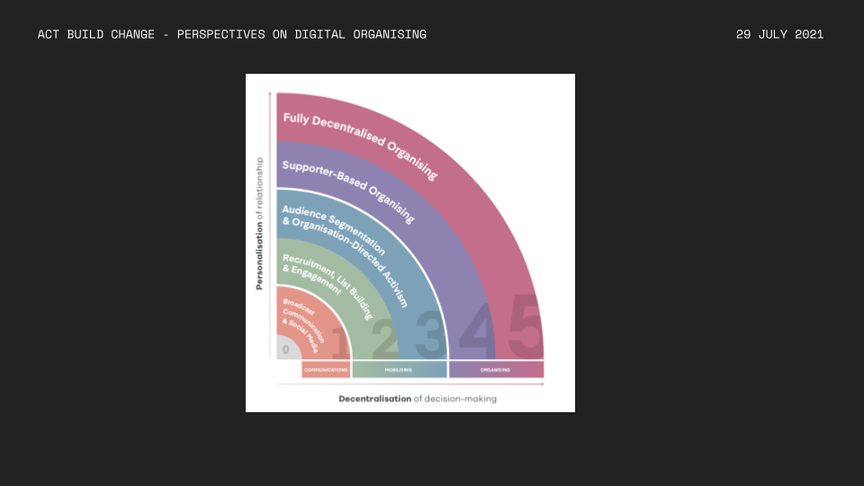Digital Organising Training
Background
The role of 'digital organiser' has in recent history emerged, often mis-understood as simply a social media management and email newsletters, for a variety of reasons.
But organising overlaps the digital and physical spaces. We ran this training to deconstruct the role and refocus back on to its roots: organising with people to build power.

Our movements face a paradox. On the one hand, we over-inflate the term “digital organizing” by using it to mean everything that happens online from social media to email. On the other hand, we under-inflate the term by thinking about “digital organizing” as inert tools and tactics rather than acknowledging the expansive social transformation of technology that is inseperable from our everyday lives.
As our lives are increasingly blurred between online and offline , we need to rethink how we organize.
What we did
We worked with a cohort of 36 campaigners on eight lunch-time sessions, in collaboration Edi Whitehead, digital organiser at Act Build Change. Topics included:
- What is Digital Organising?
- How we build relational power online
- Big organising
- How to build your base through socials and marketing
- Best practice in using data for digital organising
- Centre accessibility in digital organising
- Exploring safety, risk and security in digital organising, which we later rolled out into an independent Digital Security Training with Tipping Point UK
- How to make action happen
We invited guest organisers to co-facilitate each session, from groups like Act Build Change, Green New Deal Rising, Small Axe, Grapevine, Migrants in Culture and The Engine Room.
What next
Each of these topics could be explored much more. As "digital" becomes more and more prominent, there is a real risk that the people behind the pixels become obfuscated. It is much easier to quantify and track ad spending, and cheaper and 'easier' for a third sector organisation to deal with a smaller digital staff team, than to face the complex and uncategorisable truths of social reality on the ground. As the 'digital organiser' role popularises there is a real risk that the focus on power is lost.
We advocate for a focus on organising writ-large, aided by digital platform interventions which build real life connections.
One area for popular education is in fundamental techniques for managing communication platforms like WhatsApp and Discord.